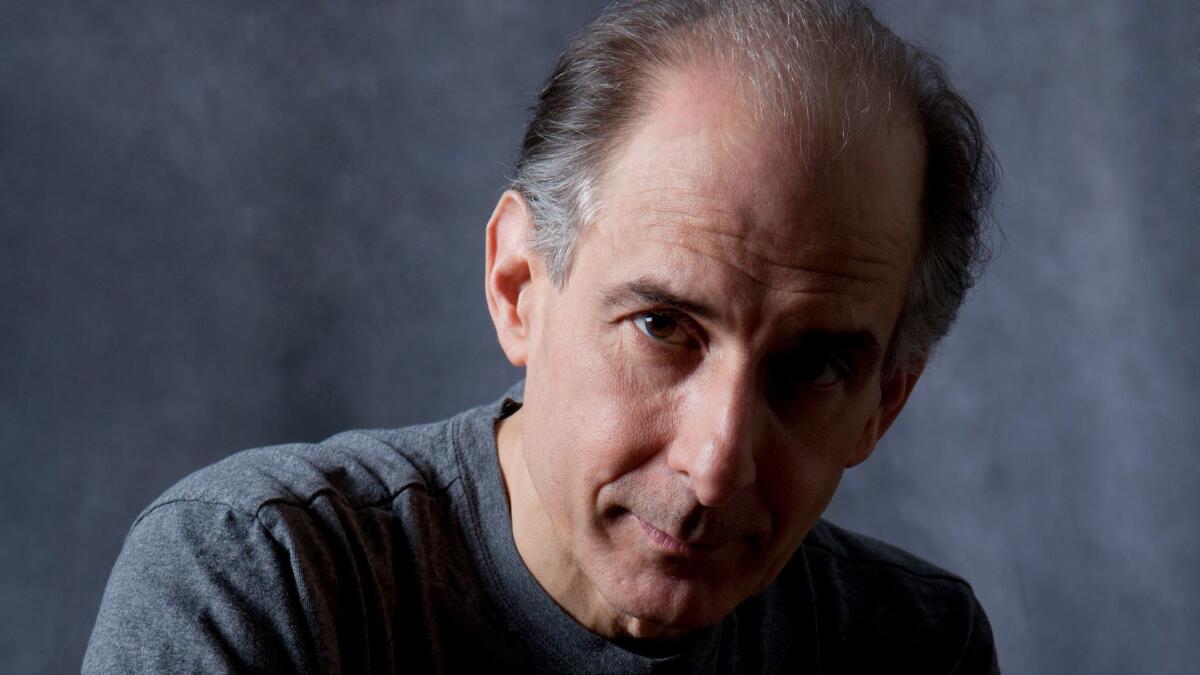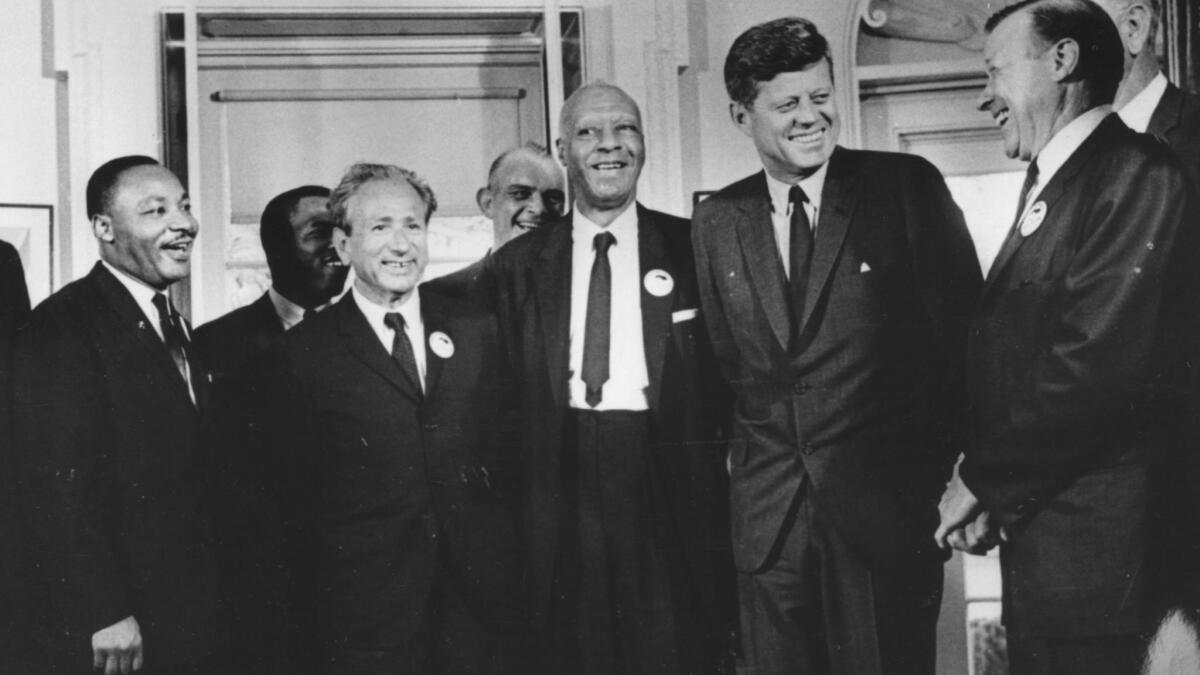‘I Will Not Remain Silent’: Music gives voice to the fight for equality

- Share via
“America must not remain silent” — that was civil rights activist Rabbi Joachim Prinz’s plea at the 1963 March on Washington.
“Bigotry and hatred are not the most urgent problem,” he declared in a speech that immediately preceded the Rev. Martin Luther King Jr.’s. “The most urgent, the most disgraceful, the most shameful and the most tragic problem is silence.”
Composer Bruce Adolphe had that speech in mind when he wrote “I Will Not Remain Silent,” a vividly metaphorical two-movement violin concerto loosely based on Prinz’s life.
The concerto will receive its West Coast premiere on Jan. 21 and 22 by the L.A. Chamber Orchestra under the direction of Jeffrey Kahane as part of the orchestra’s three-week “Lift Every Voice” series exploring courage and compassion. Violinist Daniel Hope is the soloist.
Jan. 21 also marks the date of the Women’s March on Washington, a coincidence that feels eerily prescient to the concerto’s composer.
“When I first composed the piece [in 2014], I didn’t expect that its message would seem as relevant as it suddenly seems,” Adolphe said in a recent interview last week. “This piece suddenly has a power to it that is very appropriate to that weekend and to the times that seem to be ushering in, and I can’t say I’m happy about that.”

Adolphe originally composed the piece in commemoration of Prinz’s life and activism. The composer first learned about Prinz through a personal connection: The rabbi was a relative of Adolphe’s wife. (When Adolphe and his wife were married, Joachim Prinz’s son, Jonathan Prinz, performed the ceremony.) As a Jewish American with a deep interest in history and human rights, Adolphe was drawn to Prinz’s story of outspoken resistance to Nazism and the rabbi’s fervent civil rights activism as an American émigré.
In “I Will Not Remain Silent,” the violin personifies Prinz’s voice, struggling against an orchestra that represents Nazi Germany in the first movement and civil rights era America in the second.
In writing the violin’s lines, Adolphe drew inspiration from the Jewish cantorial music he grew up with, infusing the soloist’s part with the kind of modal tonality, rhythmic freedom and emotional qualities listeners will recognize as distinctly Jewish. “There’s an ethnic identity that is immediately understandable,” Adolphe said, pointing to the stylistic traditions of Jewish violinists like Isaac Stern, Itzhak Perlman and Yehudi Menuhin.
At the end of the first movement, Adolphe said, “the violin is striving to say something and the orchestra is congealed, basically, into a big fist. It’s trying to smash the violin, and it produces a very irregular, completely unpredictable series of hard blows. But the violin does not get crushed, and it remains the last note of the movement.”
In the second movement, a texture dominated by the inflection of black American spirituals and jazz music is regularly interrupted by violence, again delivered forcefully by the orchestra.
“The march to freedom and happiness is continually interrupted by the texture of the music being destroyed,” Adolphe said, “but it keeps coming back together.”
SIGN UP for the free Essential Arts & Culture newsletter »
The end of the second movement is less conclusive than the first. There’s a sense of hope as well as fear. Adolphe said he placed a musical question mark at the end of the piece because he felt it would be incorrect to end the piece triumphantly. The pursuit of equality and justice in America is not over.
Violinist Daniel Hope said he appreciated the open-endedness of the concerto’s final moments.
“We’re living in a very interesting time,” he said, “and so the question of how you perceive the piece very much depends on one’s own perception of how one sees the world. It’s about a struggle, and it’s about [whether we] succeed in that struggle.”
For Hope, part of the piece’s appeal is the light it sheds on Prinz’s life.
“There are so many stories out there. We know so few of them,” he said. “When they are given wings, in this case musical wings, it’s something very powerful, very emotional.”
♦ ♦ ♦ ♦ ♦ ♦ ♦ ♦ ♦ ♦
Los Angeles Chamber Orchestra
What: Program includes Bruce Adolphe’s “I Will Not Remain Silent” and Kurt Weill’s “The Seven Deadly Sins”
When: 8 p.m. Jan. 21 at the Alex Theatre, 216 N. Brand Blvd., Glendale; and 7 p.m. Jan. 22 at UCLA’s Royce Hall, 340 Royce Drive, Los Angeles
Tickets: Start at $27
Information: (213) 622-7001, www.laco.org
Follow The Times’ arts team @culturemonster.
ALSO
L.A. Chamber Orchestra gets ‘Lost in the Stars’
Bramwell Tovey and Ray Chen deliver fun and fire for fans at Disney Hall
George Takei’s Broadway musical ‘Allegiance’ breaks a theater-screening record
The one-man musical ‘The Lion’ leaps to the L.A. stage with songs of regret and hope
More to Read
The biggest entertainment stories
Get our big stories about Hollywood, film, television, music, arts, culture and more right in your inbox as soon as they publish.
You may occasionally receive promotional content from the Los Angeles Times.










